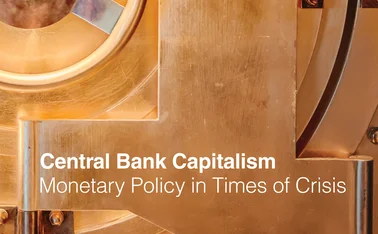
BIS study asks whether central bank crisis actions de-risk the balance sheet
Authors study whether a central bank can influence its own risk, or if this is “wishful thinking”

A recent study by the Bank for International Settlements seeks empirical support for the idea that central banks’ crisis actions may actually cut the overall risks on their balance sheet, even if the individual operations seem highly risky.
In the working paper, authors Diego Caballero, André Lucas, Bernd Schwaab and Xin Zhang test the theory – which harks back as far as the 19th century – on recent data relating to actions taken in the Eurosystem from 2009–15.
The theory, propounded by
Only users who have a paid subscription or are part of a corporate subscription are able to print or copy content.
To access these options, along with all other subscription benefits, please contact info@centralbanking.com or view our subscription options here: http://subscriptions.centralbanking.com/subscribe
You are currently unable to print this content. Please contact info@centralbanking.com to find out more.
You are currently unable to copy this content. Please contact info@centralbanking.com to find out more.
Copyright Infopro Digital Limited. All rights reserved.
As outlined in our terms and conditions, https://www.infopro-digital.com/terms-and-conditions/subscriptions/ (point 2.4), printing is limited to a single copy.
If you would like to purchase additional rights please email info@centralbanking.com
Copyright Infopro Digital Limited. All rights reserved.
You may share this content using our article tools. As outlined in our terms and conditions, https://www.infopro-digital.com/terms-and-conditions/subscriptions/ (clause 2.4), an Authorised User may only make one copy of the materials for their own personal use. You must also comply with the restrictions in clause 2.5.
If you would like to purchase additional rights please email info@centralbanking.com







